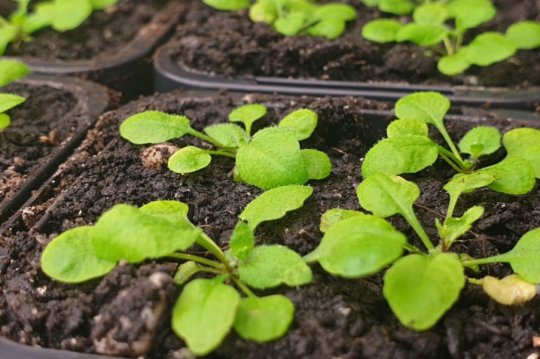[ad_1]
A global research team including scientists from La Trobe University have identified specific locations within plants’ chromosomes capable of transferring immunity to their offspring.
The findings could lead to new ways of preventing disease in crops — of great potential benefit to farmers.
Led by the University of Sheffield (UK), the research team identified, for the first time, specific locations (loci) within a plant’s chromosomes that impart disease resistance to their offspring by undergoing a reversible biochemical modification known as DNA methylation, in response of pathogen attack.
Published in the journal eLife, the research identifies four DNA loci that control disease resistance against a common plant pathogen called downy mildew. Importantly, this resistance was not associated with any negative effects on growth or resistance against other environmental stresses.
La Trobe University Research Fellow Dr Ritushree Jain said that when plants are repetitively attacked by pathogens, they develop a ‘memory’ (known as priming in plants) of this encounter which enables them to fight efficiently when attacked again.
“One of the mechanisms for transferring this ‘memory’ to their next generation via seeds is DNA methylation,” Dr Jain said.
“It is an epigenetic phenomenon — meaning there is no change in the DNA sequence.”
Dr Jain explained the potential benefit to farmers these findings offer.
“Not only could this significant discovery lead to new ways of preventing disease in important crops, but it could also help reduce our reliance on pesticides,” Dr Jain said.
Lead researcher Professor Jurriaan Ton from the University of Sheffield’s P3 Plant Production and Protection Centre said findings from the study pave the way for further research into how epigenetics can help to improve disease resistance in food crops.
“We now hope to use this study to carry out further research to understand how these epigenetic loci control so many different defence genes,” Professor Ton said.
“We are also keen to participate in more translational studies, in order to find out whether epigenetics can be used to prime disease resistance in crops that are vital to food supplies around the world.”
Led by the University of Sheffield in the UK, the research was conducted in collaboration with La Trobe University, PSL University (Paris) and the Technical University of Munich (Germany).
Story Source:
Materials provided by La Trobe University. Note: Content may be edited for style and length.
[ad_2]















